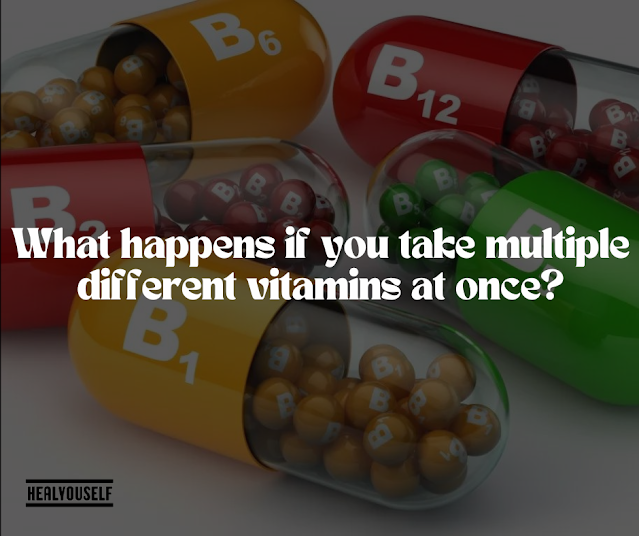What happens if you take multiple different vitamins at once?
Taking vitamins has become a part of many people’s daily routines. With so many options out there, from multivitamins to specific supplements like Vitamin D, Vitamin C, or B-complex, it's tempting to take several at once to cover all your bases. But is it safe? And what actually happens when you mix different vitamins?
The Good Stuff: Potential Benefits
Taking a variety of vitamins can be really beneficial, especially if your diet is lacking in certain nutrients. Here are some of the positive effects:
Filling Nutritional Gaps: Not everyone eats a perfectly balanced diet every day. Taking multiple vitamins can help ensure you're getting essential nutrients your body needs to function properly.
Boosted Immune System: Vitamins like C, D, and E play significant roles in supporting your immune system. A combination of these can enhance your body’s defense against illnesses.
Improved Energy Levels: B vitamins are known for their role in energy production. Taking a B-complex supplement can help improve your energy levels and reduce fatigue.
Better Skin, Hair, and Nails: Vitamins like A, C, and E, along with biotin, are great for maintaining healthy skin, hair, and nails.
The Risks: What to Watch Out For
While there are benefits, there are also potential downsides to taking multiple vitamins at once:
Overdosing: Some vitamins, particularly fat-soluble ones like A, D, E, and K, can accumulate in your body and reach toxic levels if taken in excess. This can lead to serious health issues.
Interactions: Certain vitamins can interact with each other in ways that reduce their effectiveness. For instance, taking too much zinc can interfere with copper absorption, and too much calcium can affect how your body absorbs iron and magnesium.
Side Effects: High doses of some vitamins can cause unwanted side effects. For example, too much Vitamin C can lead to stomach cramps and diarrhea, while excessive Vitamin B6 can cause nerve damage over time.
Expensive Urine: Your body can only absorb so much of each vitamin at a time. Anything extra gets flushed out in your urine, meaning you might be wasting money on vitamins your body doesn't even use.
Finding the Balance
So, how do you reap the benefits of taking multiple vitamins without running into problems? Here are some tips:
Consult a Healthcare Provider: Before starting any new vitamin regimen, it's a good idea to talk to your doctor or a nutritionist. They can help you figure out what you actually need based on your diet and health status.
Take a Quality Multivitamin: If you’re looking for an easy way to cover your bases, a well-balanced multivitamin can be a good option. Just make sure it doesn’t exceed the recommended daily allowances.
Watch the Dosages: Pay attention to the dosages of each vitamin you’re taking. Avoid megadoses unless prescribed by a healthcare provider.
Separate Your Vitamins: Some vitamins are better absorbed when taken with food, while others should be taken on an empty stomach. Spreading them out throughout the day can also help prevent interactions and improve absorption.
Listen to Your Body: If you start experiencing unusual symptoms after taking vitamins, it might be a sign you’re getting too much of something. Pay attention to how you feel and adjust accordingly.
Conclusion
Taking multiple vitamins can be beneficial if done correctly, but it's important to be mindful of potential risks. Balance and moderation are key. With the right approach, you can support your health without overloading your system.

